Tucked into the Financial District at 47 Broadway, China Chalet was never supposed to be cool. When it opened in 1975, it was a gilded Cantonese banquet hall lined with leather booths over moquette, sparkly chandeliers, and lazy Susans — the kind of place where generations of New Yorkers, yuppies, bankers, and politicians came for dim sum, weddings, and bottomless mai tais. But like so many great New York stories, something unexpected happened after dark.
By the 2000s, this proper dining room with its white tablecloths and lush interior had developed an alter ego. Upstairs, after hours, China Chalet became a hybrid of dinner theater, dive bar, and dreamscape. Promoters, DJs, and artists discovered its vast, slightly surreal space and transformed it into a downtown playground. It wasn’t just another party spot; it was a scene — smoky, glamorous, and chaotic, where the city’s young creatives came to burn bright and mingle with people from all walks of city life.
The room itself was part of the magic. Cavernous and cinematic, with bright pink LEDs glowing from the ceiling and a long hallway that felt like a portal between two worlds — banquet hall on one side, fever-dream party on the other. The mirrored walls reflected every movement, every flash of light, amplifying the energy and making the room feel infinite. It was the height of the indie sleaze era, and the rules were loose, the crowd looser. You could smoke indoors (and everyone did), underage drink, witness people doing drugs at the tables, wear whatever you wanted, or whatever you imagined yourself to be. Even the restrooms became part of the scene, where cute meet-ups occasionally sparked between dances.
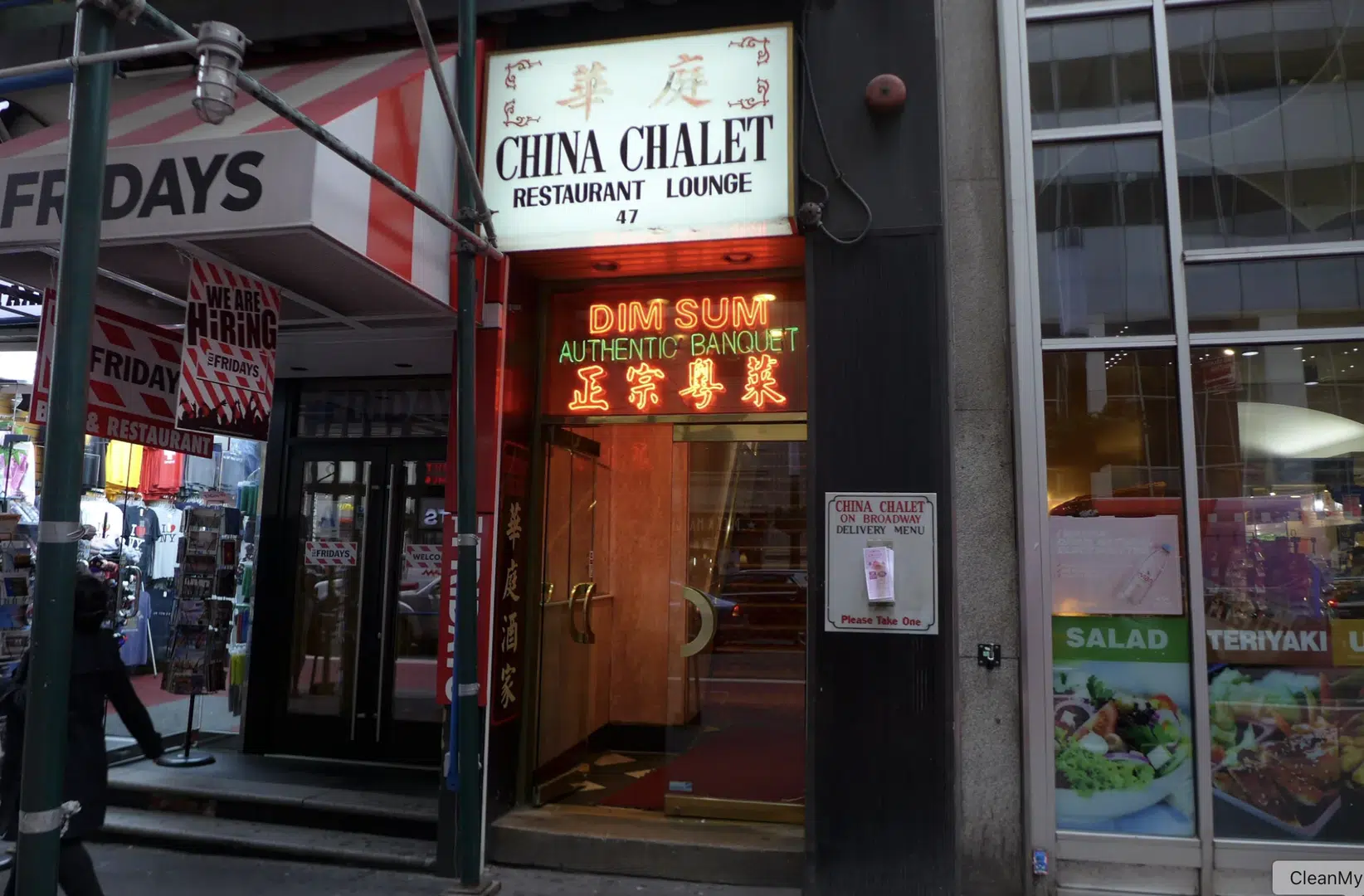
China Chalet entrance on 47 Broadway
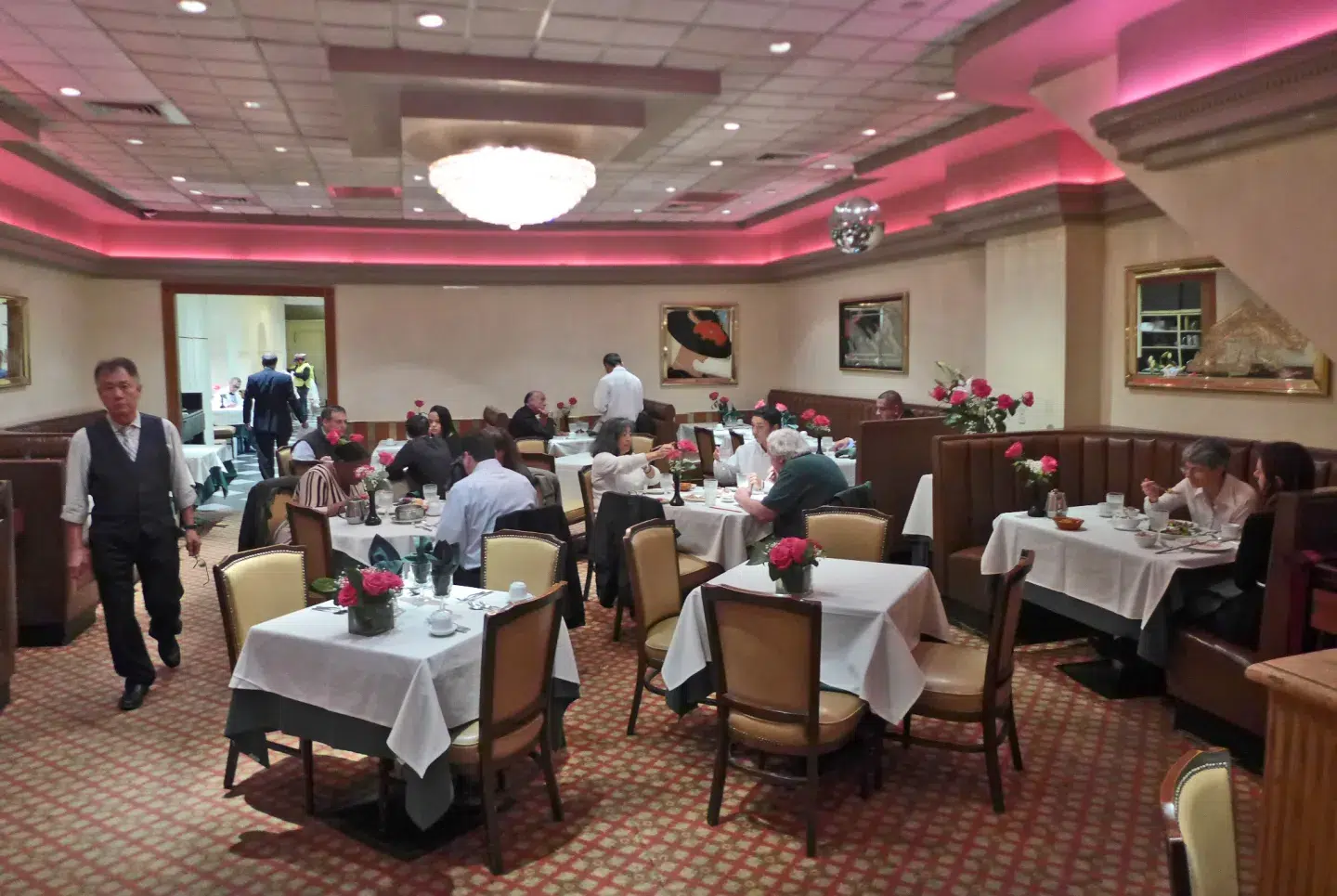
China Chalet dining hall
By the mid-2010s, China Chalet had become what GQ once called “Fashion’s Studio 54 of the Instagram era.” Flashing cameras captured every sparkle of chandelier, every flicker of neon, every couture outfit passing through the mirrored walls. This was a downtown laboratory where fashion, nightlife, and art collided in real time, where Internet culture gathered IRL and aesthetic archetypes were forged.
You might have spotted Alexander Wang slouched in a booth, a young Timothée Chalamet threading through the crowd, or Lourdes Leon laughing with friends near the bar. The regulars were a constellation of emerging talent: DJs Dylan Ali and Mona Matsuoka, first-time model Paloma Elsesser, up-and-coming designer Telfar Clemens and party architects DeSe Escobar, Fiffany Luu, and Kyle Luu, founders of the now-legendary Club Glam. It wasn’t about who was famous yet, but who might be.
Club Glam, launched around 2016, was the crown jewel of China Chalet’s nightlife. Messy, theatrical, defiantly queer, and effortlessly stylish, it was a monthly costume drama where gender, fashion, and fantasy collided. There were themed “balls,” spontaneous runway walks, and a kind of beautiful anarchy that could only happen in New York. These nights defined a downtown underground decade: chaotic, creative, and unforgettable.
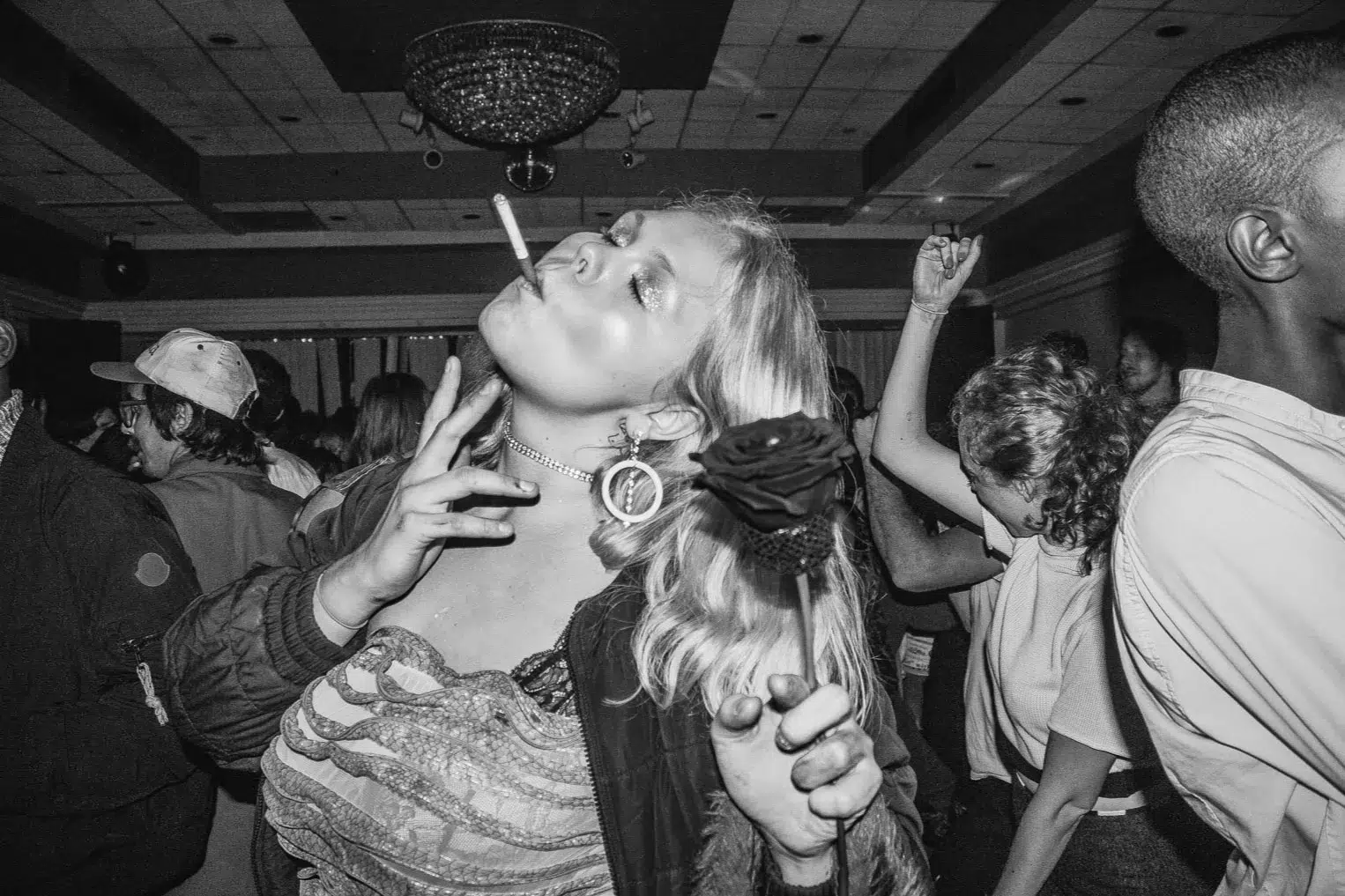
Photo by Tyrell Hampton
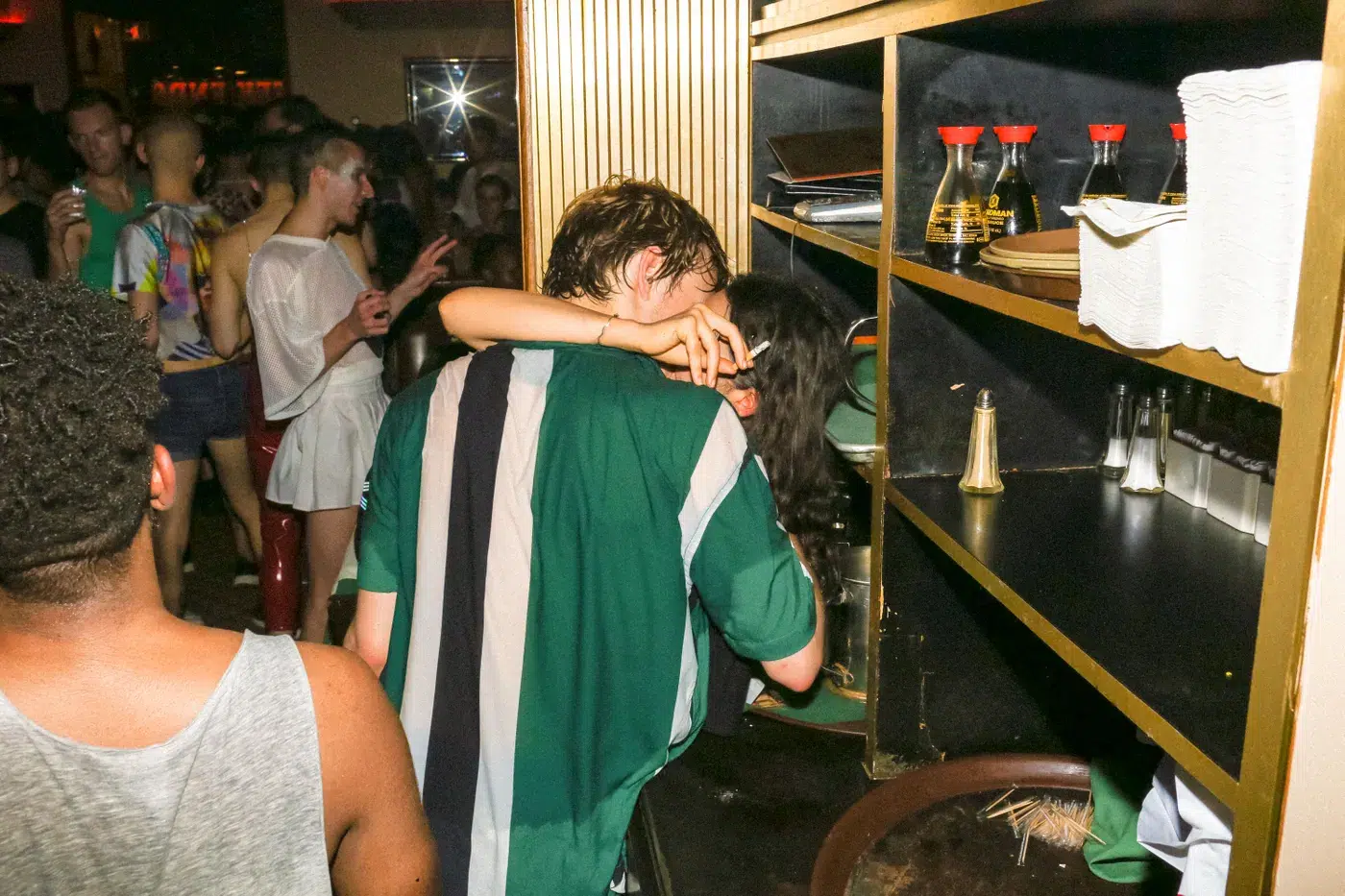
Photo by Serichai Traipoom
Regulars still talk about “the tunnel of transformation,” the hallway linking the dining room to the makeshift dance floor, where you could almost feel the temperature switch from polite dinner chatter to bass-thumping euphoria. The sensation echoed the experience of entering Studio 54 in the 1970s, when a velvet-lined entrance hall opened suddenly into a glowing, smoky, ecstatic disco space. Both spaces offered the same illusion: that you weren’t just entering a club, but crossing into another dimension of New York. There was something alchemical about it, a place where a stranger could become a muse, or a diner could emerge in glitter, sweat, and light.
The China Chalet matchbook became the keepsake of that world, a tiny relic of the restaurant’s double life, collected and treasured as a token of belonging. Today, those little golden matchbooks still pop up on resale sites, their bright red-stamped logos carrying the ghost of cigarette smoke, clinking Tsingtao bottles, and nights that refused to end.
When the pandemic hit in 2020, China Chalet finally closed its doors, ending a decades-long run as both restaurant and cultural safe space. Its closure marked more than just the loss of a venue; it was the end of a particular kind of New York night: spontaneous, inclusive, messy, and incandescent. Yet its influence lived on in photobooks, zines, and pop-up parties that spun out from it. Club Glam reappeared in cities around the world, its alumni went on to shape fashion shows, films, and editorials, and the Chalet itself slipped into legend.
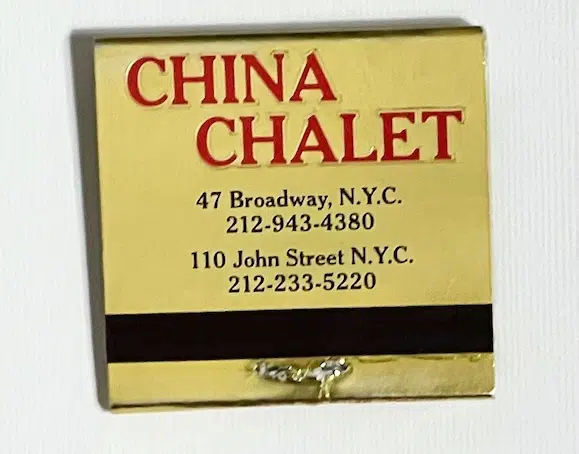
China Chalet matchbook
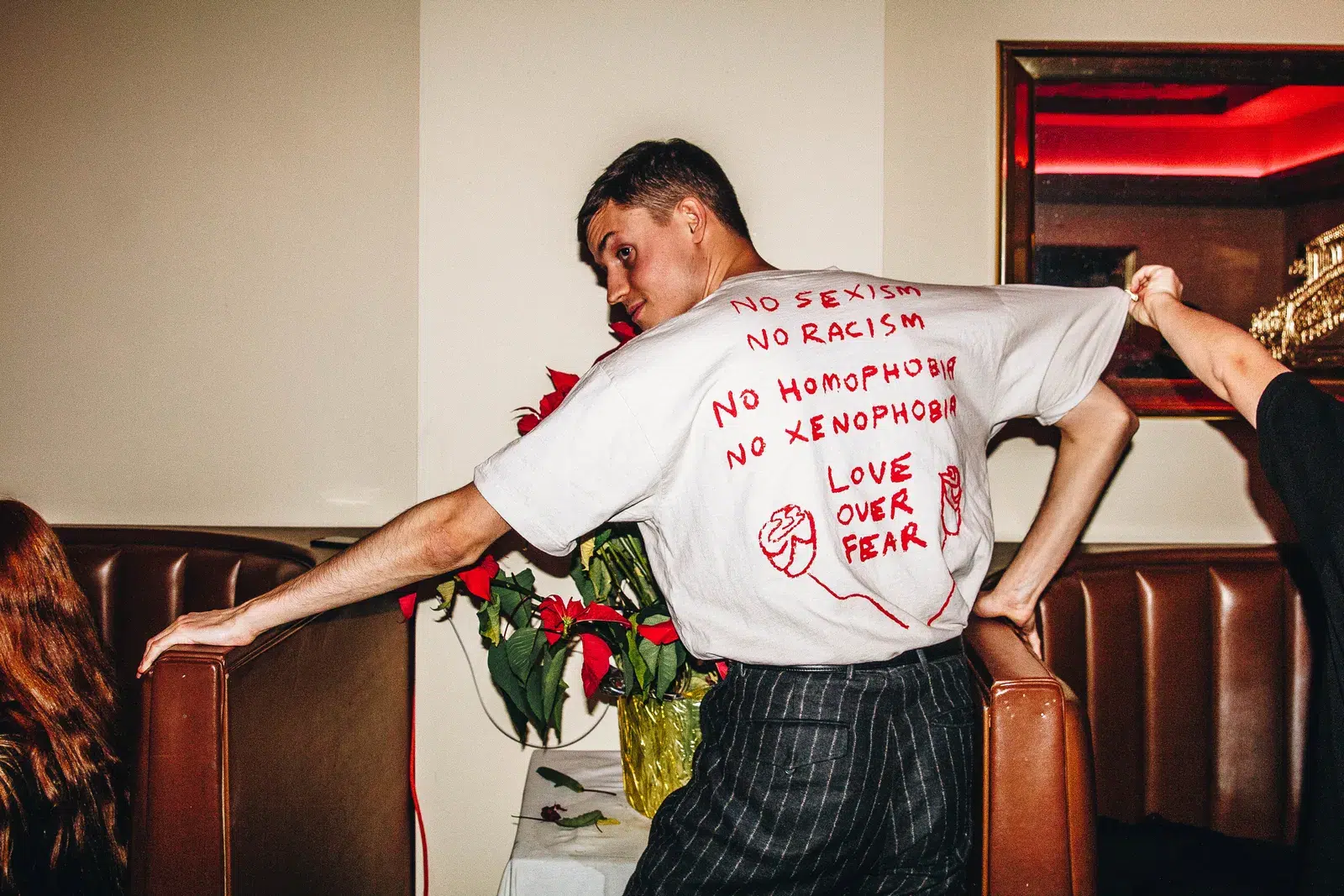
Photo by Tyrell Hampton